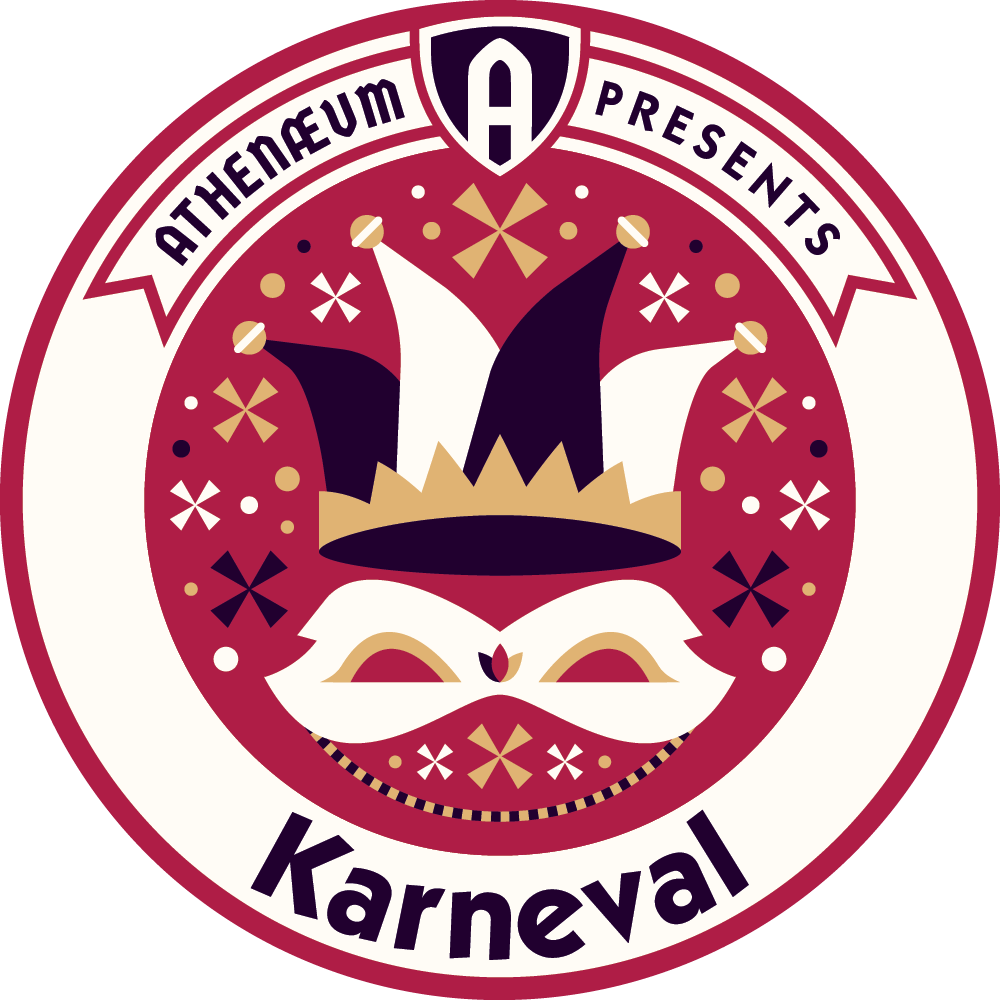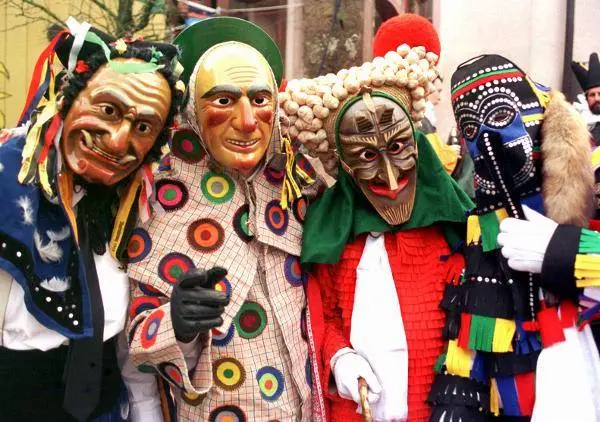Party like it’s 1399!
Celebrated by pre-Christians as a means of driving out winter and evil spirits and welcoming in the springtime—in part through the role reversal of masters and enslaved people—Karneval was later adopted by the church as a festive period to enjoy food, drink, and revelry before the fasting and penitence of Lent. Today, Karneval retains many of the traditions that began in the Middle Ages. It’s also known as Fasching or Fastnacht, depending on which part of Germany you’re in, and each carries different traditions. The Athenaeum celebration is modeled after Karneval in Köln, or Cologne, sister city to Indianapolis.
We’re kicking off the lead up to the “Crazy Days” with a red & white (and black for those who prefer to wear suits) masked ball this year—join us for our Karneval Maskerade Party on Saturday, January 27 at 7 PM in the Basile Theatre in the Historic Athenaeum with live music and jesters. Be sure to dress to impress with cocktail attire and a mask. Your ticket includes 2 complimentary drinks and German-inspired hors d’oeuvres. Tickets go on sale on the 11th day of the 11th month at 11 minutes after the 11th hour, Karneval is a whole season—not just one night.

